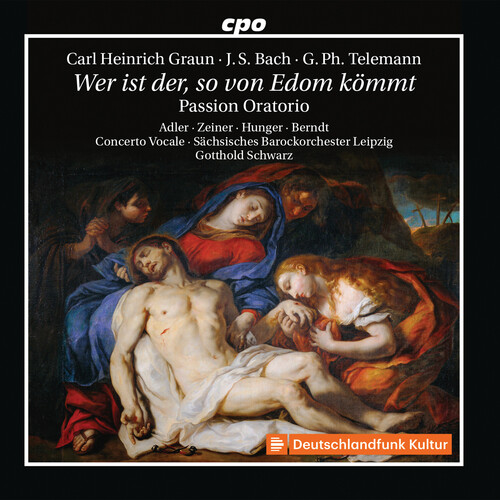Show results for
Deals
- 4K Ultra HD Sale
- Action Sale
- Alternative Rock Sale
- Anime sale
- Award Winners Sale
- Bear Family Sale
- Blu ray Sale
- Blu ray Special Editions
- Blues on Sale
- British Sale
- Classical Music Sale
- Comedy Music Sale
- Comedy Sale
- Country Sale
- Criterion Sale
- Electronic Music sale
- Hard Rock and Metal Sale
- Horror Sci fi Sale
- Kids and Family Sale
- Metal Sale
- Music Video Sale
- Musicals on Sale
- Mystery Sale
- Naxos Label Sale
- Page to Screen Sale
- Rap and Hip Hop Sale
- Reggae Sale
- Rock
- Rock and Pop Sale
- Rock Legends
- Soul Music Sale
- TV Sale
- Vinyl on Sale
- War Films and Westerns on Sale

Wer Ist Der So Von Edom Kommt
- (2 Pack)
- Format: CD
- Release Date: 6/7/2019

Wer Ist Der So Von Edom Kommt
- (2 Pack)
- Format: CD
- Release Date: 6/7/2019
- Label: Cpo Records
- Number of Discs: 2
- UPC: 761203527021
- Item #: 2168154X
- Genre: Classical
- Release Date: 6/7/2019

Product Notes
This month we are happy to present to you a great Passion oratorio that Johann Sebastian Bach in all likelihood pieced together for his last Passion service. He took a work by Carl Heinrich Graun, a composer whom he admired, and expanded it to produce a magnificent two-part Passion. To it he added compositions of his own authorship and others by his friend Georg Philipp Telemann. The result was a pasticcio, a new work consisting of various set pieces. This practice was very common during Bach's times. Both composers on whose works Bach drew were contemporary stars who did not at all object to this practice, especially since they occasionally operated in precisely the same way. The composer Georg Philipp Telemann saw no reason to complain about the reuse of his works. Although we do have quite a bit of background information about the Passion, the riddle surrounding it is only beginning to be solved. Accordingly, Bach scholarship can only hope that additional sources will be found and prove Johann Sebastian Bach's authorship once and for all. The work perhaps even offers evidence pointing to one of his lost Passions, and it might even be his last Passion oratorio - which, as the current state of research knowledge sees things - can only have been written during the years following 1733.

